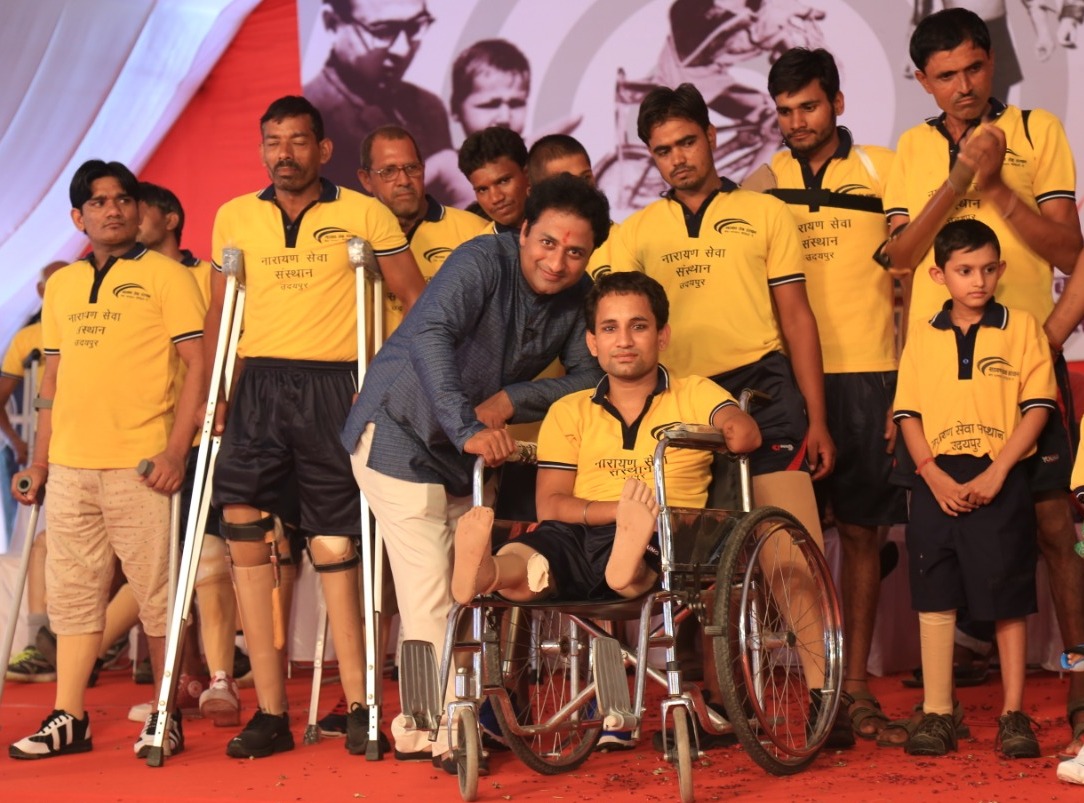
Covid-19 has created a sense of awareness amongst the masses even those who were negligent towards weekly health check-ups and even for that matter those who preferred to do home remedies to cater to various illnesses. Parents became alert on children being vaccinated well on time and not missing out on their monthly health check-ups even. However, the economically backward sections of the society and those who are differently-abled faced tremendous inequalities in healthcare access. Amid the lockdown, differently-abled and chronically ill people aged between 18-64 years with basic medical conditions increased the risk of serious life-threatening complications due to COVID-19. This was a major challenge amongst those belonging to the economically backward and weaker sections of the society. Those from the rural areas especially the ones who were differently-abled faced tremendous hurdles with the ease of access to oxygen, hospital beds and even transportation facilities.
The major cause of concern was for those who suffered from disabilities where getting jabbed for COVID-19 was another challenge. Access to information on the availability of these vaccines and even reaching vaccination centres was a major challenge especially due to the lack of information, supply of vaccines and inaccessibility of health services in rural areas. This was also a major challenge for the differently-abled in the Rur-ban (Semi Urban) areas. To avoid such challenges multiple organisations and NGO’s came forward with home care and facilities of delivering COVID-19 medication with pre-prescribed Corona medical kits. This impacted the overall statistics of people being vaccinated and a dip in COVID-19 cases too. According to the Govt. statistics, India logged its highest weekly vaccination rates with over 33 million vaccination doses administered between June 21st –26th which was in a span of just five days. The Drugs Controller General of India under an emergency authorisation approved 2 coronavirus vaccines—the Oxford/Astra-Zeneca vaccine (Covishield, the Indian version of the AZD1222 vaccine), and the Covaxin, BBV152, developed by a domestic manufacturer Bharat Biotech—are currently been used under an emergency authorization.
Despite various awareness campaigns by the Government and initiatives for people to come forward and be vaccinated, the population from the rural backdrop still seem to fall and have presumptions on the vaccine not being safe. This is primarily due to the faulty word of mouth and their beliefs which has impacted even the population with disabilities in the rural areas especially far-flung villages. The Government agencies, companies along with volunteers and NGO’s have come forward to create awareness on COVID-19 vaccination through small Nukkad Nataks and Chaupals that create an understanding and awareness of this deadly virus. Some companies have released an advertisement to create awareness amongst the differently-abled people by introducing sign language for those with disabilities especially those who are mute and have hearing disabilities.
Data ever since has been a challenge where major sources of information were not updated to date. Government data on non-communicable diseases and chronic diseases for long have been outdated. COVID-19 generated data that has offered the health sector and even the Government and other agencies information on homogeneous data which has been very useful for analysis. Big Data has been utilised by Government and non –government institutions in India which offered detailed information to all health and health-related institutions.
Countries such as New Zealand and its Ministry of Health have a section of their website dedicated to providing statistics in accessible formats, including sign language and easy to read. In addition, the government of Mexico implemented a similar practice for the disabled in their country. Community support networks have grown in Colombia and recruit volunteers who support individuals with disabilities and older individuals with their groceries and other purchases. In addition, in Panama, to reduce risks, specific opening hours have been allocated for essential purchases for persons with disabilities and their assistants. The United Kingdom of Great Britain and Northern Ireland have initially relaxed strict confinement rules and introduced exceptions to allow autistic individuals and other disabled persons to go outside. France has also introduced similar measures.
The government of India created various awareness campaigns for COVID-19 however, there is no such national strategy in place for people with disabilities. India has over 2.68 crore people with disabilities. With such a huge number the Central Government has to still step up in creating awareness drives for vaccines amongst those who are differently-abled. Long waits in queues at the inoculation centres, lower immunity and unavailability of separate spaces for the differently-abled at the vaccination centres has been a major challenge.
However, despite the unavailability of a national strategy on COVID-19 vaccinations various State Governments have begun to adopt strategies to vaccinate the differently-abled. Call centres, helpline numbers, direct walk-ins and home vaccinations have been implemented. However, this is still a major cause of concern in rural areas which lack infrastructure which still leaves the differently-abled residing in these far-flung regions to be left out. NGO’s and non-profit organisations have been organising camps and influencing communities to create awareness at the bottom of the pyramid. Awareness campaigns have been conducted at schools in rural areas by such organisations to spread the word on the challenges of not being vaccinated through children who would communicate this to their respective parents and guardians. Outreach programs and social media has played a huge role in creating awareness on COVID-19 vaccination. To spread awareness on COVID-19 vaccinations state governments have been conducting multilingual campaigns to avoid wrong information being floated.
COVID-19 and the Delta variant have been proved to be faster and even more deadly which is why the Government must now have a national strategy to avoid loss of lives. This should be with a special focus on rural areas with an introduction of a strong infrastructure that supports the economically weaker section of the society, old people with complications and disabilities and those who have chronic ailments that have difficulties in wearing masks at crowded places. Even after introducing free vaccinations drives by the government, the major challenge is the storage of this vaccine at a stipulated temperature which has been the major reason for its shortage in supply and rise in people opting to take the jab from private hospitals and private institutions. The Government must take into consideration reducing the out of pocket expenditure of those who are senior citizens, are differently-abled and those who have caused overall inaccessibility of the vaccine. NGO’s, Corporates, Government and Non-Government institutions, non-profit organisations must collaborate and join hands to vaccinate every single person in the country.
";

.jpg)